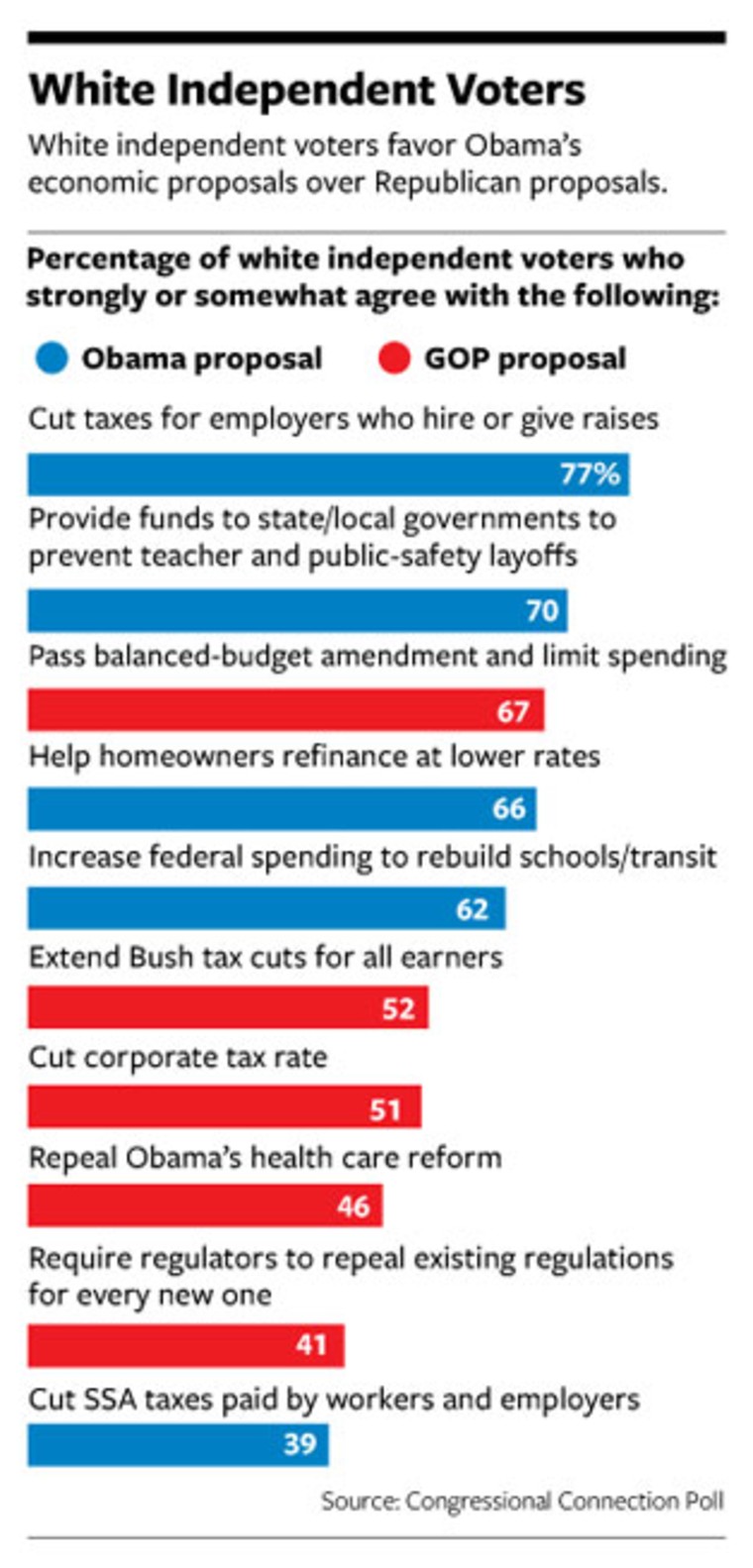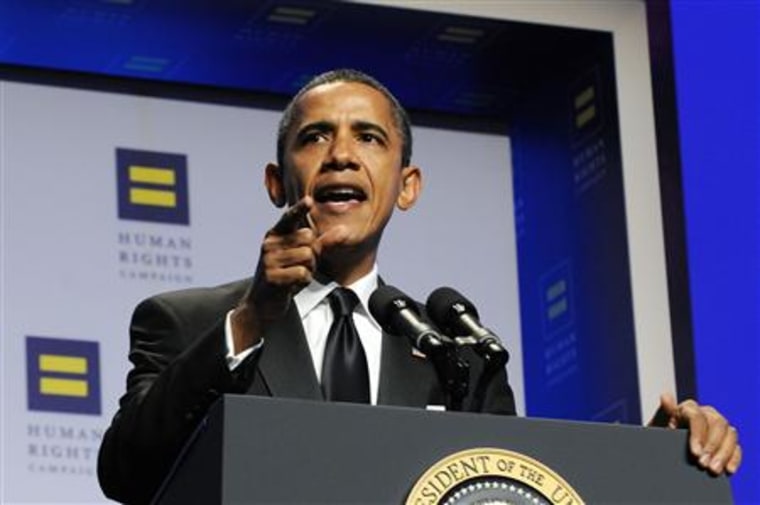On the core issues of creating jobs and controlling the federal budget deficit, President Obama faces a consistent divide in public opinion — particularly among whites — that could offer his best opportunity in the 2012 race to overcome disappointment in his performance so far.
On both the deficit and the economy, a substantial plurality of white voters say they trust Republicans more than Obama to find answers, according to the most recent United Technologies/National Journal Congressional Connection surveys. These results track findings in other polls that show Obama’s overall approval rating among white voters skidding below 35 percent in some cases.

And yet when asked to compare specific strategies from Obama and Republicans to revive job growth or control the deficit, the president’s proposals consistently scored better in the Congressional Connection polls.
That stark and stable contrast suggests that one of the key questions in 2012 will be whether voters primarily look back, or ahead, when casting their presidential ballots. Traditionally, voters base their decisions about incumbent presidents primarily on a backward-looking judgment about his performance, notes Emory University political scientist Alan Abramowitz. But that pattern, he argues, won’t necessarily hold next year because voters are souring on the GOP at least as fast as they are on Obama.
“Generally in presidential elections when an incumbent is running, the retrospective judgments are usually more important rather than the prospective judgments,” said Abramowitz. “But I'm not sure [that will continue] because what you’re finding [in these polls] about the preference for what Obama is proposing over what the Republicans are proposing ties in with some of the doubts voters are expressing about the Republican Party.”
The contrast between prospective and retrospective judgments on Obama in the Congressional Connection polls is striking. In an early September survey, for instance, the share of respondents who said Obama’s policies made the economy worse was nearly double the percentage who said he improved conditions; among whites the ratio was almost three-to-one.
But when the poll asked respondents to assess five ideas from Obama and five from the GOP to create jobs, Obama’s proposals generally drew more support, even among groups usually skeptical of him. For instance, white independents were the most supportive of cutting the taxes of employers who hire new workers and providing states money to avoid layoffs. They also liked Obama’s proposal to help homeowners refinance their mortgages at lower interest rates and to spend more on federal infrastructure projects. The only GOP job-creation idea cracking the top five for these swing voters was passing a balanced-budget amendment that limited federal spending.
Obama’s job-creation ideas also took four of the top five spots in the survey among white women, both with and without college degrees. His ideas took three of the top four spots for non-college white men, who have resisted Obama from the outset. Only among college-educated white men did GOP ideas dominate, taking four of the top five spots.
Questions about the deficit in a mid-September survey produced the same pattern. Whites strongly preferred the GOP over Obama when asked which side they trust to blot the red ink. But Obama’s specific ideas to do so grabbed four of the top five rungs among whites when they were asked again to judge five proposals from each side. Repealing Obama’s health care law did draw substantial support among white men (if not white women), but a core GOP proposal to convert Medicare into a voucher-like system, freeze discretionary spending through 2019, and transform Medicaid into a block grant all faced widespread resistance among whites.
Republican pollster Glen Bolger predicts such preferences won’t benefit Obama much in 2012 if his performance assessments don’t improve. “By that point in time he will have had four years, and if he hasn’t gotten the job done, why would you rehire the guy?” Bolger said.
But Joel Benenson, Obama’s pollster, says that voters’ assessments of the two sides’ prospective agendas will not only play the largest role next year, but will also shape their retrospective judgments on Obama’s performance. “Elections are about choices. When there is a choice in front of these folks who are fighting every day to grab back some of the security they had … they are going to look a little bit backwards, more at the [current] moment and more than anything at going forward,” he said. “They know that the old rules haven’t applied in a while.”
Democratic pollster Mark Penn, who helped guide President Clinton’s 1996 reelection and served as the chief strategist for Hillary Rodham Clinton’s bid for the Democratic nomination in 2008, says the key for an incumbent president, especially during hard times, is formulating an agenda attractive enough that voters believe “that the second term is going to fulfill the promise of your first.” And on that front, he argues, Obama, despite the positive responses in the Congressional Connection Poll, still has his work cut out for him. “So far I don’t think we’ve seen that development of a big second-term agenda,” Penn says.
The article, "Obama’s Ideas Offer Ray of Hope," first appeared in the National Journal.
